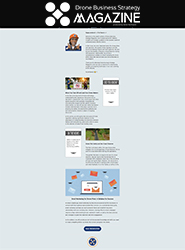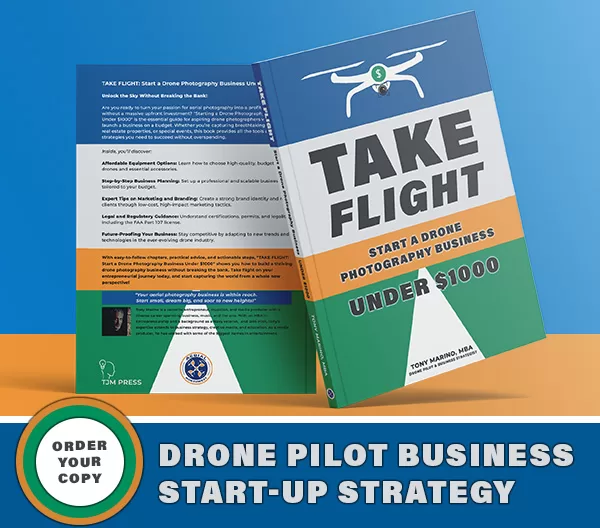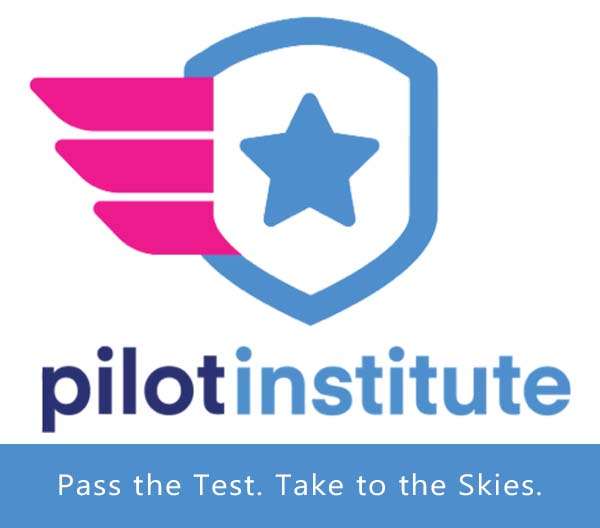
Drone technology is revolutionizing industries such as agriculture, filmmaking, construction, and real estate. As the use of drones expands, the demand for skilled drone pilots is rising. This article explores the job outlook for drone pilots in 2026 and provides insights into salary expectations in this growing field.
Job Outlook for Drone Pilots
The job outlook for drone pilots in 2026 is promising. The Federal Aviation Administration (FAA) reported over 1.7 million registered drones in the U.S. as of 2020, and this number is expected to increase. As drone technology becomes more integrated into various sectors, the need for professional drone pilots will continue to grow.
Industry Growth and Opportunities
Industries such as agriculture, construction, film, and real estate are increasingly adopting drone technology. Drones are used for tasks such as aerial photography, surveying, mapping, and inspections, which require skilled operators. This growing reliance on drones is creating numerous job opportunities for certified drone pilots.
Technological Advancements
Advancements in drone technology are expanding the capabilities of drones, making them more valuable to industries. For example, improvements in data analysis, artificial intelligence, and automation are enhancing the functionality of drones. Pilots who stay updated with these advancements and acquire new skills will be in high demand.
Regulatory Changes
Regulatory changes are also impacting the drone pilot job market. The FAA’s Part 107 rules require commercial drone pilots to obtain a Remote Pilot Certificate, ensuring they have the necessary knowledge and skills. Future regulations on drone identification and tracking will further shape the industry and create new opportunities for certified pilots.
Salary Expectations for Drone Pilots
The salary for drone pilots varies widely based on factors such as experience, industry, location, and employment type. Here’s a detailed look at what drone pilots can expect to earn in 2024.
Average Salary Overview
In the United States, the average salary for a drone pilot is approximately $83,000 annually. However, this figure can range significantly based on various factors.
Experience Matters
Experience is a key factor in determining a drone pilot’s salary:
- Entry-Level Pilots: Those with less than one year of experience can expect to earn around $42,000 per year.
- Experienced Pilots: Pilots with five or more years of experience can earn salaries of about $88,000 annually.
Industry Variations
The industry in which a drone pilot works greatly influences their salary:
- Film and Television: Drone pilots in this industry can earn up to $100,000 per year.
- Agriculture and Construction: Salaries typically range from $43,000 to $53,000 annually, depending on the specific job role and responsibilities.
Geographic Differences
Location is another critical factor affecting drone pilot salaries:
- California: The average salary is about $78,000 per year.
- Texas: Pilots in this state earn around $68,000 annually.
- Nationwide: Glassdoor estimates the average salary at $89,000 annually, but this can vary widely by state and city.
Employment Type: Freelance vs. Full-Time
Freelance Drone Pilots
Freelance drone pilots often have higher earning potential but face different financial dynamics:
- Hourly Rates: Freelance rates range from $35 to $150 per hour, with a median of $85 per hour.
- Income Variability: Freelancers have the flexibility to choose their projects, which can lead to periods without work. However, managing multiple projects can increase overall income.
Full-Time Drone Pilots
Full-time drone pilots benefit from steady income and job security:
- Hourly Rates: Full-time pilots earn between $80 and $120 per hour, with a median rate of $95 per hour.
- Benefits: Full-time positions often include health insurance, retirement plans, and paid vacation, providing additional job security compared to freelancing.
Boosting Earning Potential
Drone pilots can increase their earnings by:
Continuing Education
Staying current with the latest advancements in drone technology and obtaining additional certifications can enhance a pilot’s skills and marketability.
Specializing in a Niche
Focusing on a specific industry or type of drone operation, such as real estate or aerial surveying, allows pilots to become experts in that field, often leading to higher-paying jobs.
Networking and Marketing
Building a strong network and online presence can lead to more job opportunities. Creating a professional website and engaging on social media can attract new clients and referrals.
The Takeaway
The field of drone piloting offers a dynamic and evolving career with substantial earning potential. Whether you’re just starting or have years of experience, the industry provides opportunities for growth and specialization. By staying updated with the latest technology, obtaining necessary certifications, and networking effectively, drone pilots can significantly enhance their marketability and income.
As demand for drone services continues to rise across various industries, now is an excellent time to pursue a career as a drone pilot. With a blend of technical skills and strategic career planning, you can achieve both financial stability and job satisfaction in this exciting field.
If you have any questions, let us know! If you’d like to hire us, you can get more information here.
Written by: Tony Marino, MBA – FAA Certified Part 107 Commercial Drone Pilot and Chief Business Strategist at Aerial Northwest
Disclaimer: The information provided in this blog post is for general informational purposes only and should not be construed as legal advice.
Drone Pilot MBA (Podcast):
Can DRONE PILOTS Make BIG Money?
Resources
- FAA Resources: FAA DroneZone
- Article: Drone Pilot Aerial Photography Business Plan Blueprint 2024
- Article: Top 5 Drone Pilot Marketing Channels for 2024
Starting Your Own Drone Service Business
Pick up your copy today on Amazon and wherever fine books are sold.

DRONE BUSINESS STRATEGY MAGAZINE
A free digital publication made exclusively for all small business drone pilots to them help start-up, become profitable while sustaining a competitive advantage within the drone service industry sector they opt to serve.
“If you love to fly, we’d love to have you come aboard!”
We share your information with no one. Our Privacy Policy.










Leave a Reply
Your email is always safe with us.